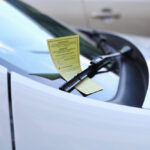

February 16, 2024
Everything you need to know about renting a car
If you’ve ever rented a car, you know that the experience can be pretty overwhelming. There are so many different companies and websites to choose from. The policies, fine print and requirements to rent a car seem endless and impossible to understand. And there are so many ways to incur hefty unintentional fees.
But if you know exactly what you need to rent a car, you’ll feel more confident when you head to the rental desk and pick up your keys. Let’s explore the different car rental requirements you’ll encounter each time you make a booking.
1. You must have a valid driver’s license
First and foremost, when you rent a car in the United States, you’ll need to present a valid state-issued driver’s license. No expired licenses will work here. If you’re traveling abroad, your U.S. driver’s license will likely pass, but you should check with the rental company beforehand. You may also need your passport or even an international driver’s license in some countries.
If you have a secondary driver on your contract (be careful about the extra fees on this one!), they will also need to provide their driver’s license.
2. Car rentals require a credit card
Do you need a credit card to rent a car? The short answer is yes. When it comes time to reserve or pay for the rental car, beware. You likely won’t be able to pay in cash or even with a debit card. And if you can, you may have to fork over a hefty deposit or go through a credit screening to verify you can cover the costs.
Rental companies commonly require you to book the car with a credit card. They will put a temporary hold on your credit card and release the hold when you return the car. It’s all about mitigating risk and protecting the vehicle in case of damage. Thus, when you do book with a credit card, you’ll need to make sure you have enough credit. Check with the rental company to see how much they charge before you book.
The name on the credit card should match the name on your driver’s license. Typically, just one driver is responsible for the credit card. If you have an additional driver on the contract (watch for additional driver fees!), they won’t need to present a credit card.
3. Consider auto insurance coverage options
Auto insurance is a must when it comes to renting a car. The rental agency will offer you the choice of rental insurance when you book or when you pick up the vehicle. It’s optional and can be pricey, but if you don’t opt in, you’re putting yourself (and your bank account) at risk.
However, there are alternatives. Your personal auto policy may include rental insurance. Or your credit card benefits program could offer rental insurance as well. You can also venture into buying insurance through a separate agency, which can be cheaper. Avail car sharing, an alternative to rental, offers Allstate insurance protection with each booking. But if you provide valid personal auto insurance information at checkout, we may waive the insurance fee, saving you money. Avail also covers the cost to repair damage done to the Avail vehicle over $3,000, which can come in handy if there is severe damage! If you’re not comfortable with paying up to $3,000, you can select an alternative protection plan for an additional charge and limit your potential out-of-pocket cost to either $1,000 or $500. This protection is not insurance and only covers damage done to the Avail car.
4. Beware of a potential young driver surcharge
Most rental car agencies charge an extra young driver fee for drivers under 25 or 21 years old. Essentially, companies are trying to protect themselves against inexperienced drivers who could be more likely to have an accident. These fees can be hefty, so make sure you’ve got a good understanding of the policy and pricing before renting a car.
5. Provide your flight itinerary when renting from an airport location
Rental agencies want to know when you’re planning to pick up the vehicle so they can have the car ready at the right time. If you’re renting from an airport, they may also ask for your flight itinerary to track the flights for delays. This document can actually be to your advantage: if your flight lands late and the company has the information, you shouldn’t get charged any late pick-up fees.
6. Have your confirmation number handy
When you go to pick up the car, you’ll want to bring your confirmation number. Whether it’s printed or on your phone, this will make the process quicker and easier for the agent, and ultimately get you on the road faster. It also serves as a backup in case they can’t find your booking information.
7. You need to be thorough when you rent a car
Being detail-oriented isn’t a requirement to rent a car, but it can save you money. When you arrive to pick up the car, walk around the vehicle and do a thorough once-over of the exterior for scratches or dents before driving off the lot. Likewise, see if there are any issues with the interior, such as tears in the seat fabric, heavily soiled fabric or smells of pets or cigarette smoke. Keep a record of anything you find and report it to the company before leaving the lot to save yourself from having to pay for damages you didn’t cause.
8. Consider car sharing instead of renting
What you need to rent a car is actually a lot of patience. Rental agencies are notorious for having long, slow lines and lots of paperwork to pick up and return the vehicle. You won’t have these experiences when you book through Avail car sharing, though: Avail has fair pricing and doesn’t charge additional fees to add a second driver or to modify or cancel your reservation. And you can avoid lines altogether when you choose Avail, as every location has self-service pick-up and drop-off thanks to an easy-to-use key box. You’ll be on your way fast — and that’s the experience you need when you rent a car.
Borrow & share
Avail makes it simple to borrow a car when you need one, or share your car with others and earn money.





